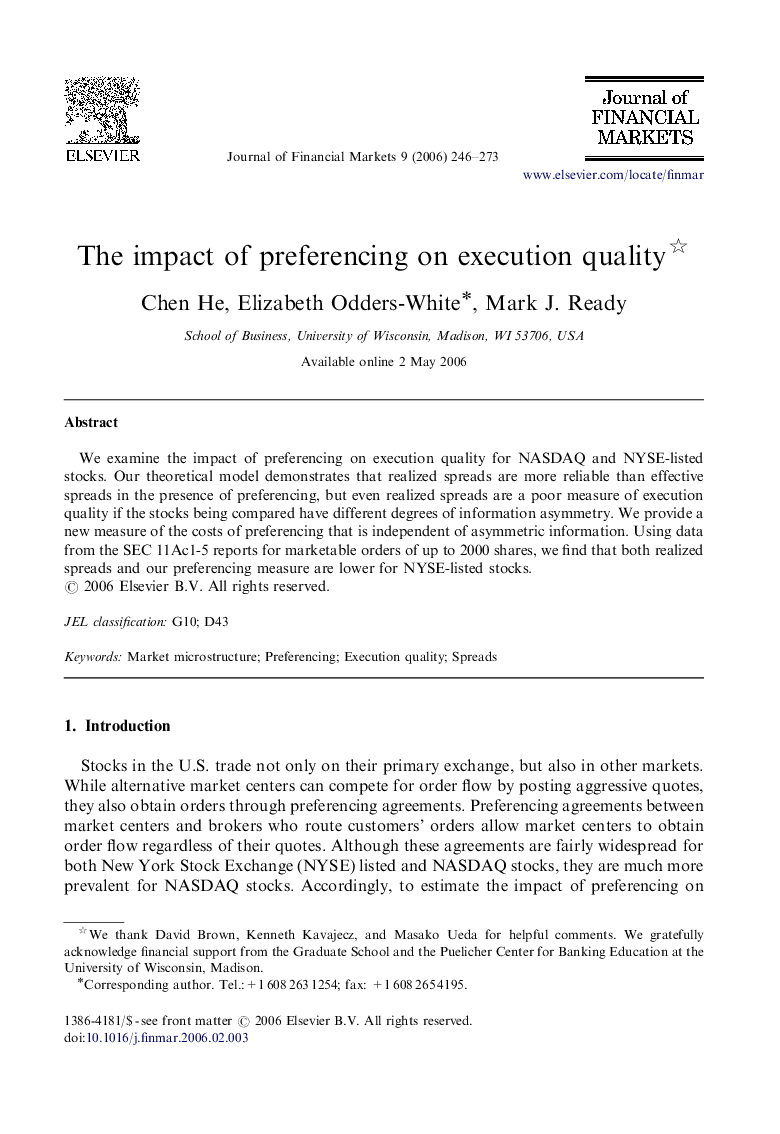| Article ID | Journal | Published Year | Pages | File Type |
|---|---|---|---|---|
| 961755 | Journal of Financial Markets | 2006 | 28 Pages |
Abstract
We examine the impact of preferencing on execution quality for NASDAQ and NYSE-listed stocks. Our theoretical model demonstrates that realized spreads are more reliable than effective spreads in the presence of preferencing, but even realized spreads are a poor measure of execution quality if the stocks being compared have different degrees of information asymmetry. We provide a new measure of the costs of preferencing that is independent of asymmetric information. Using data from the SEC 11Ac1-5 reports for marketable orders of up to 2000 shares, we find that both realized spreads and our preferencing measure are lower for NYSE-listed stocks.
Related Topics
Social Sciences and Humanities
Economics, Econometrics and Finance
Economics and Econometrics
Authors
Chen He, Elizabeth Odders-White, Mark J. Ready,
